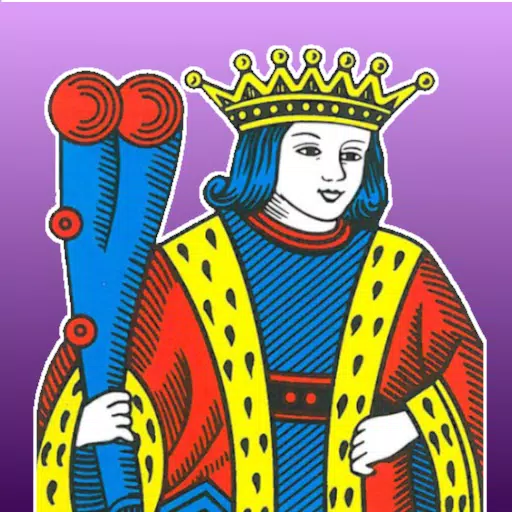Mastering Minecraft's Diverse Wood Types: A Comprehensive Guide
This guide explores Minecraft's twelve primary wood types, detailing their unique characteristics and optimal uses in crafting, building, and farming.
Table of Contents:
- Oak
- Birch
- Spruce
- Jungle
- Acacia
- Dark Oak
- Pale Oak
- Mangrove
- Warped
- Crimson
- Cherry
- Azalea
Oak
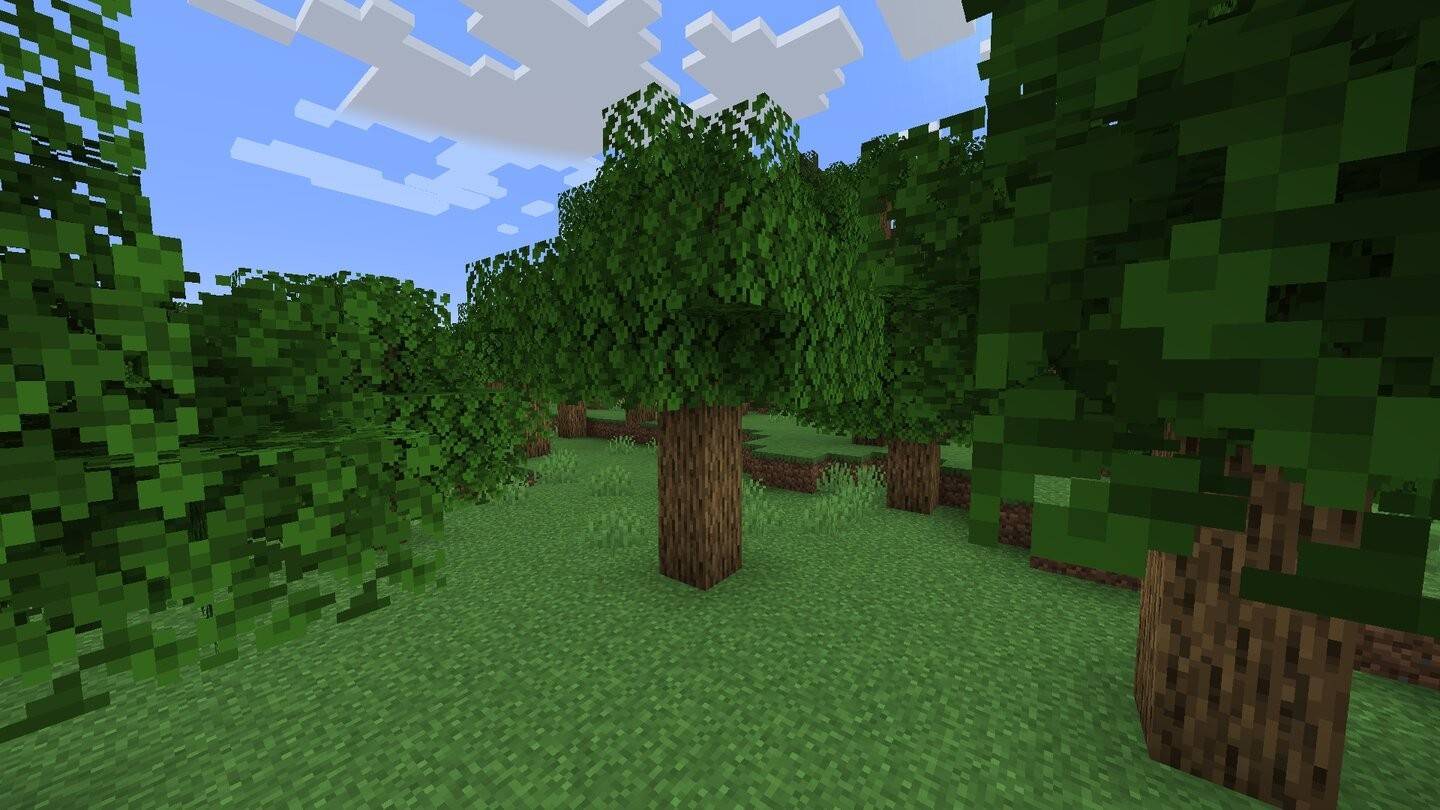 Image: ensigame.com
Image: ensigame.com
Ubiquitous except in deserts and icy tundras, oak's versatility makes it ideal for planks, sticks, fences, and ladders. Oak trees yield apples, useful for early-game sustenance or golden apple crafting. Its neutral tone suits various builds, from rustic homes to cityscapes.
Birch
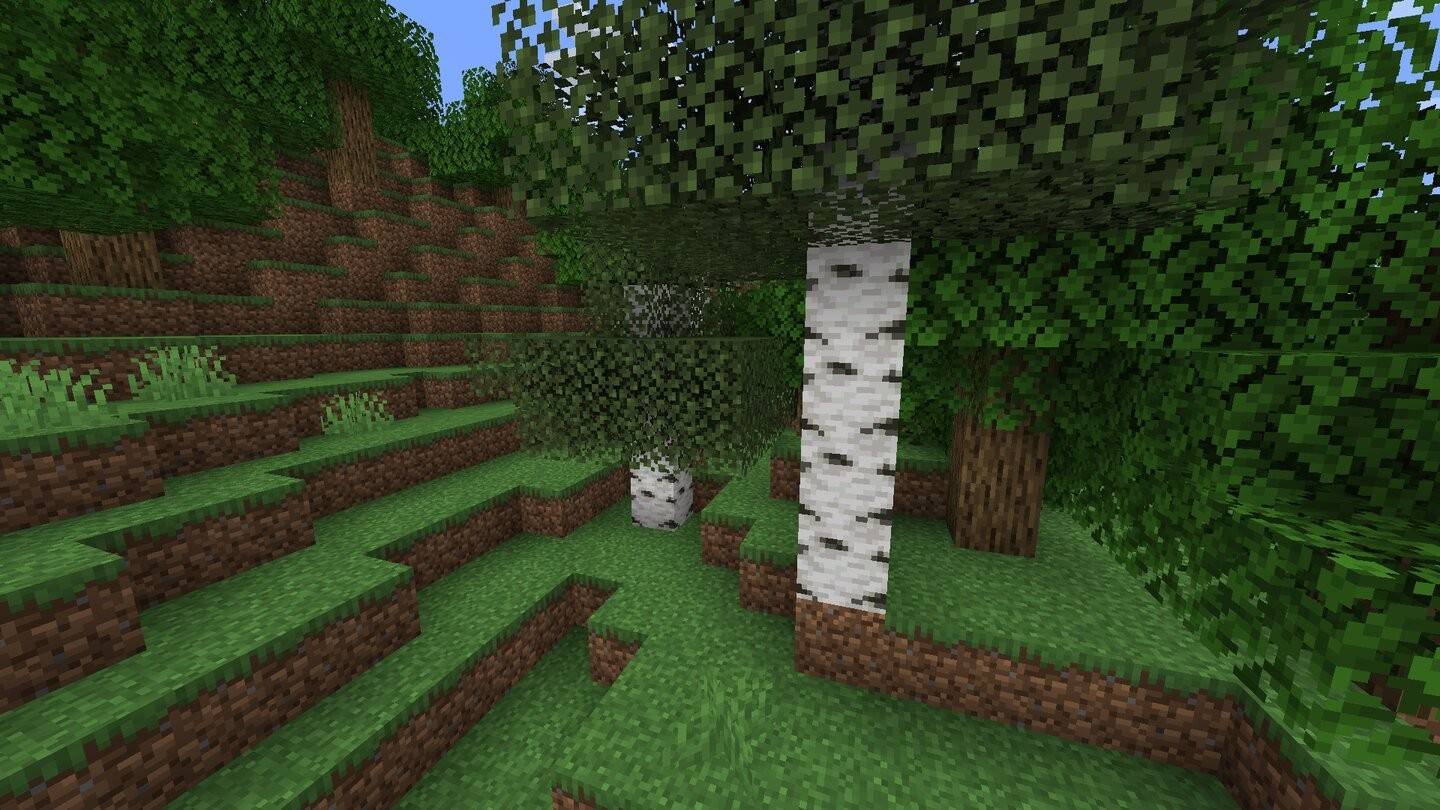 Image: ensigame.com
Image: ensigame.com
Found in birch forests and mixed biomes, birch's light wood and distinctive pattern lend themselves to modern or minimalist designs. Its texture complements stone and glass, creating bright interiors.
Spruce
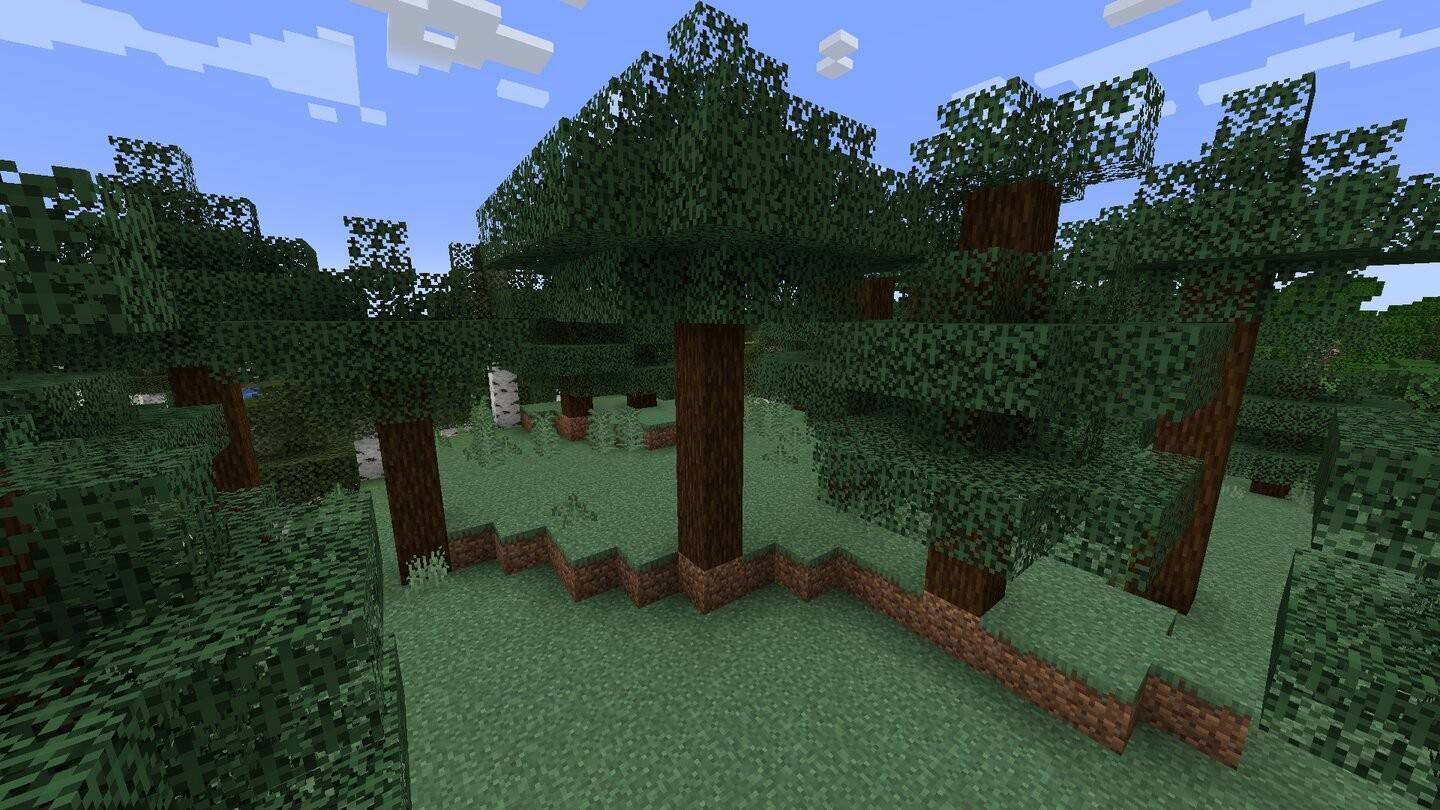 Image: ensigame.com
Image: ensigame.com
Dark spruce wood evokes gothic architecture. Its height can make harvesting challenging. Common in taiga and snowy biomes, spruce adds a robust feel to medieval castles, bridges, or country houses.
Jungle
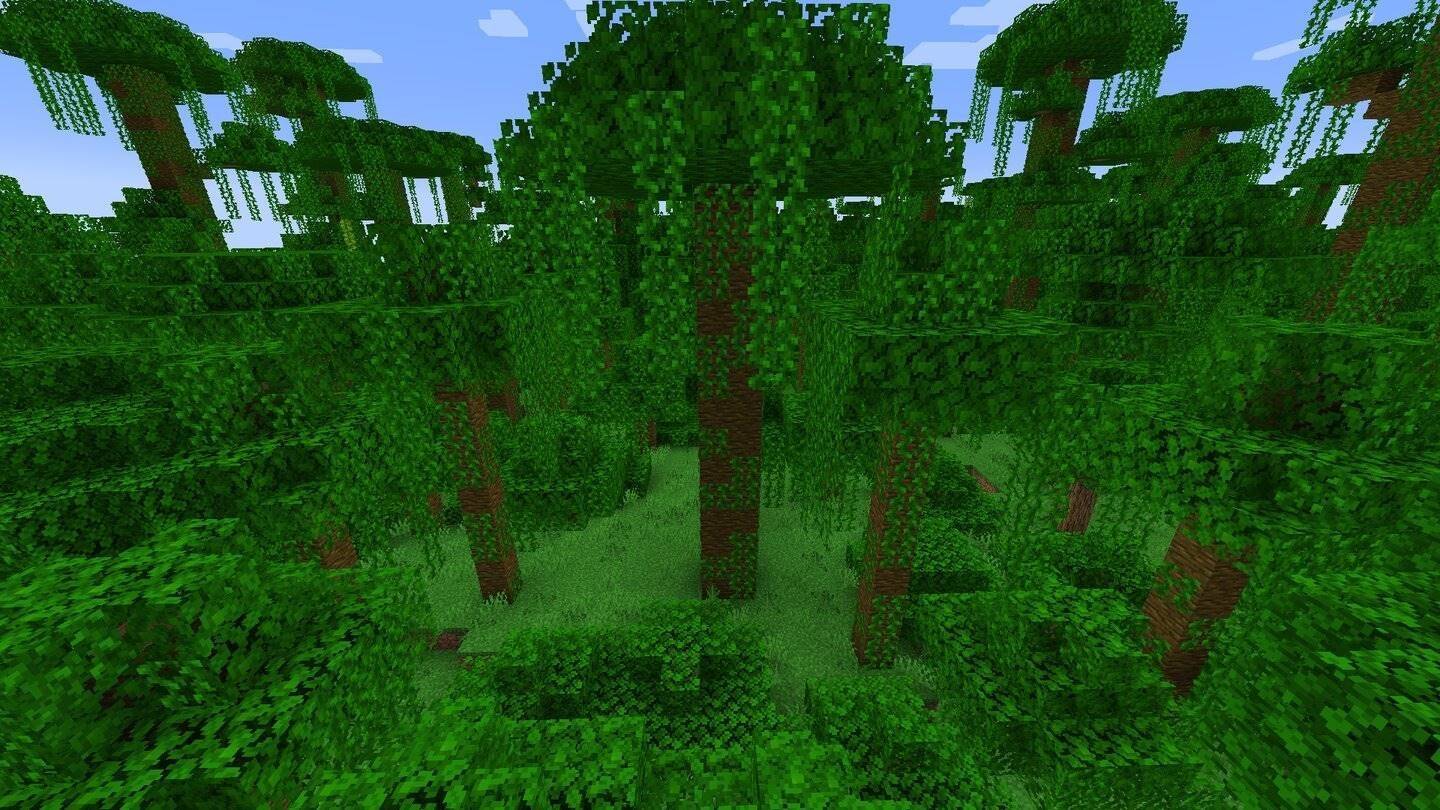 Image: ensigame.com
Image: ensigame.com
Jungle's giant trees, found only in jungles, boast a bright hue, often used decoratively. Cocoa beans grow on these trees, making them valuable for cocoa farms. Their exotic appearance suits adventure-themed or pirate builds.
Acacia
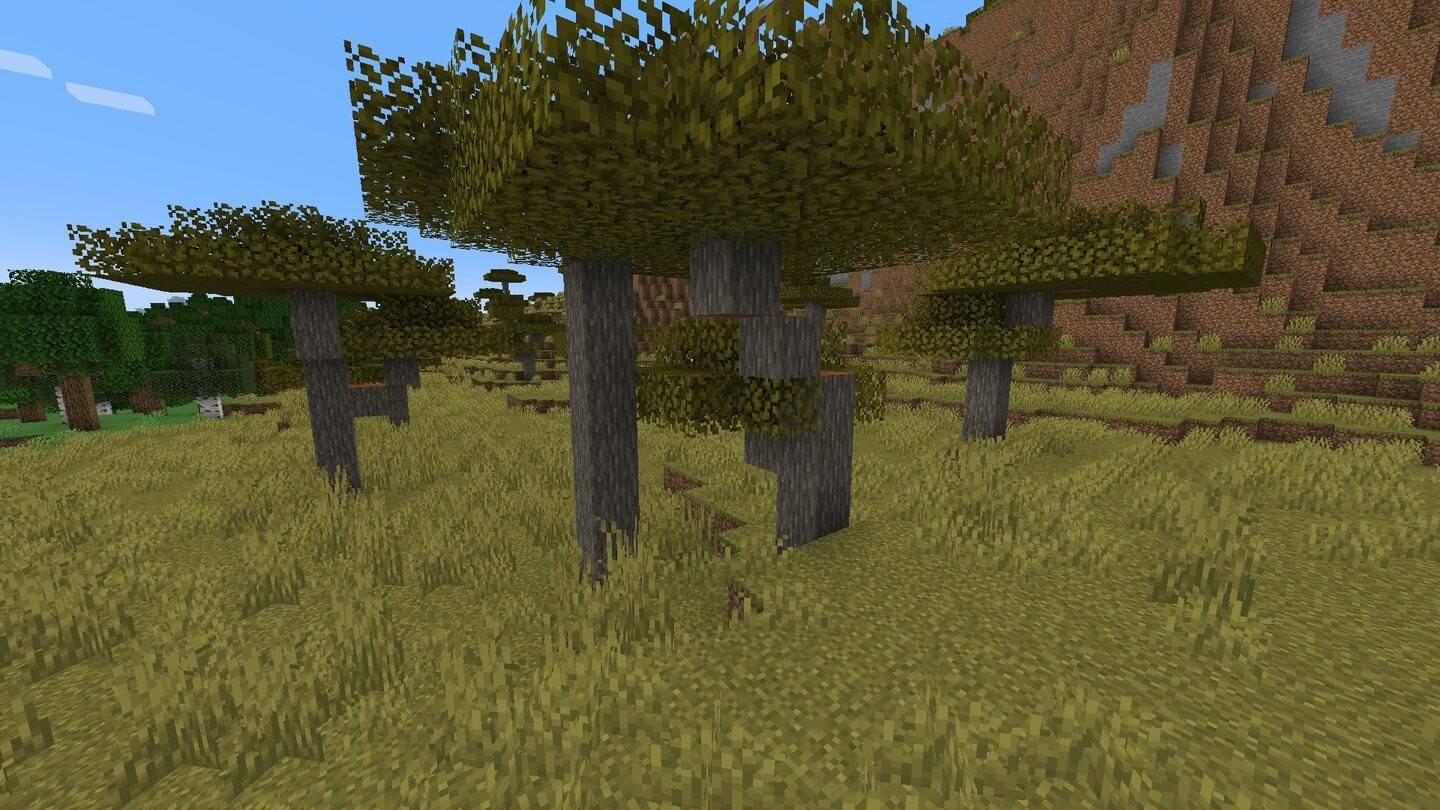 Image: ensigame.com
Image: ensigame.com
Acacia's reddish tint is striking in desert biomes. Its unusual, horizontally spreading branches in savannas make it perfect for ethnic villages, desert bridges, or African-inspired structures.
Dark Oak
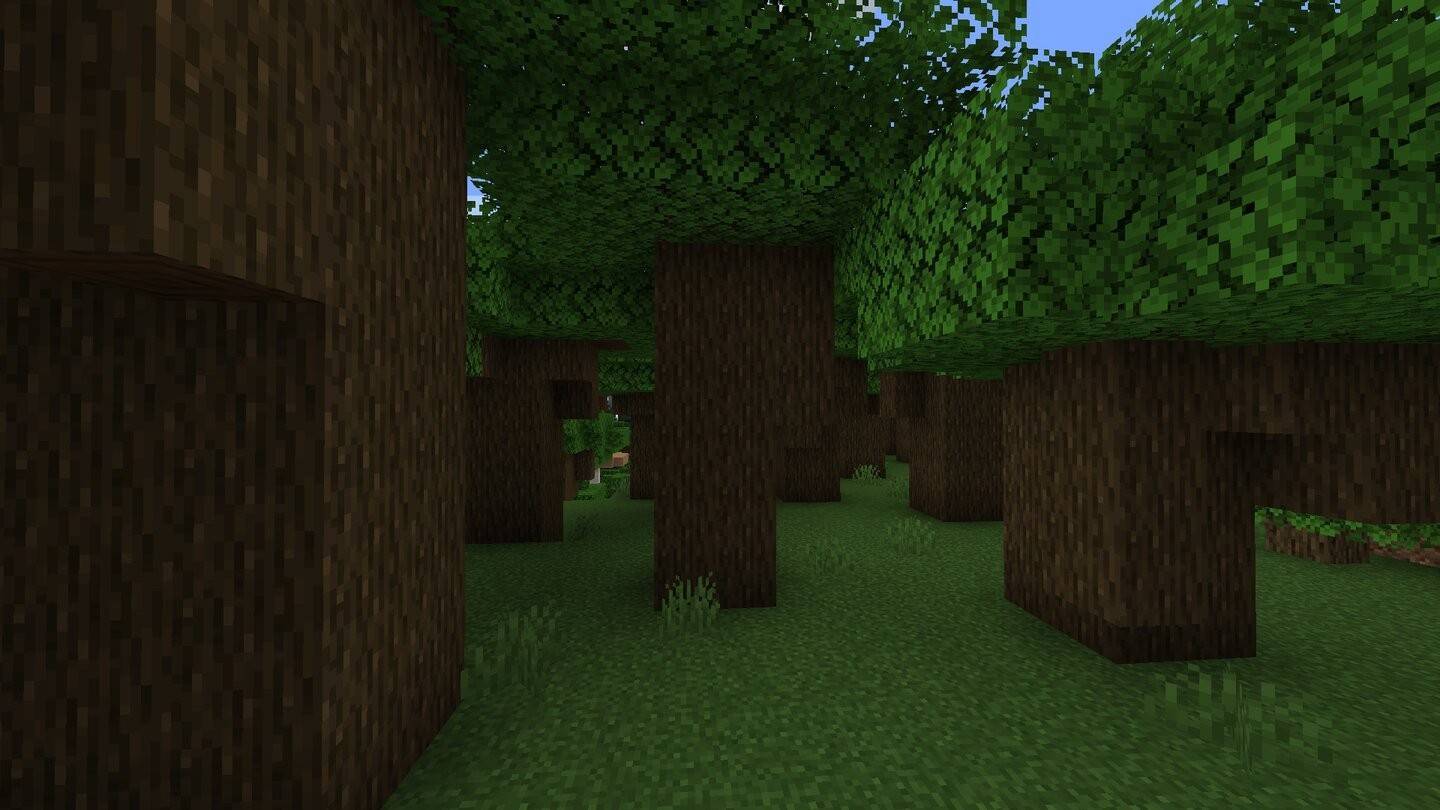 Image: ensigame.com
Image: ensigame.com
Dark oak's rich, chocolate-brown shade is popular for castles and medieval builds. Found only in Roofed Forests, it requires four saplings to plant. Its deep texture creates luxurious interiors or grand doors.
Pale Oak
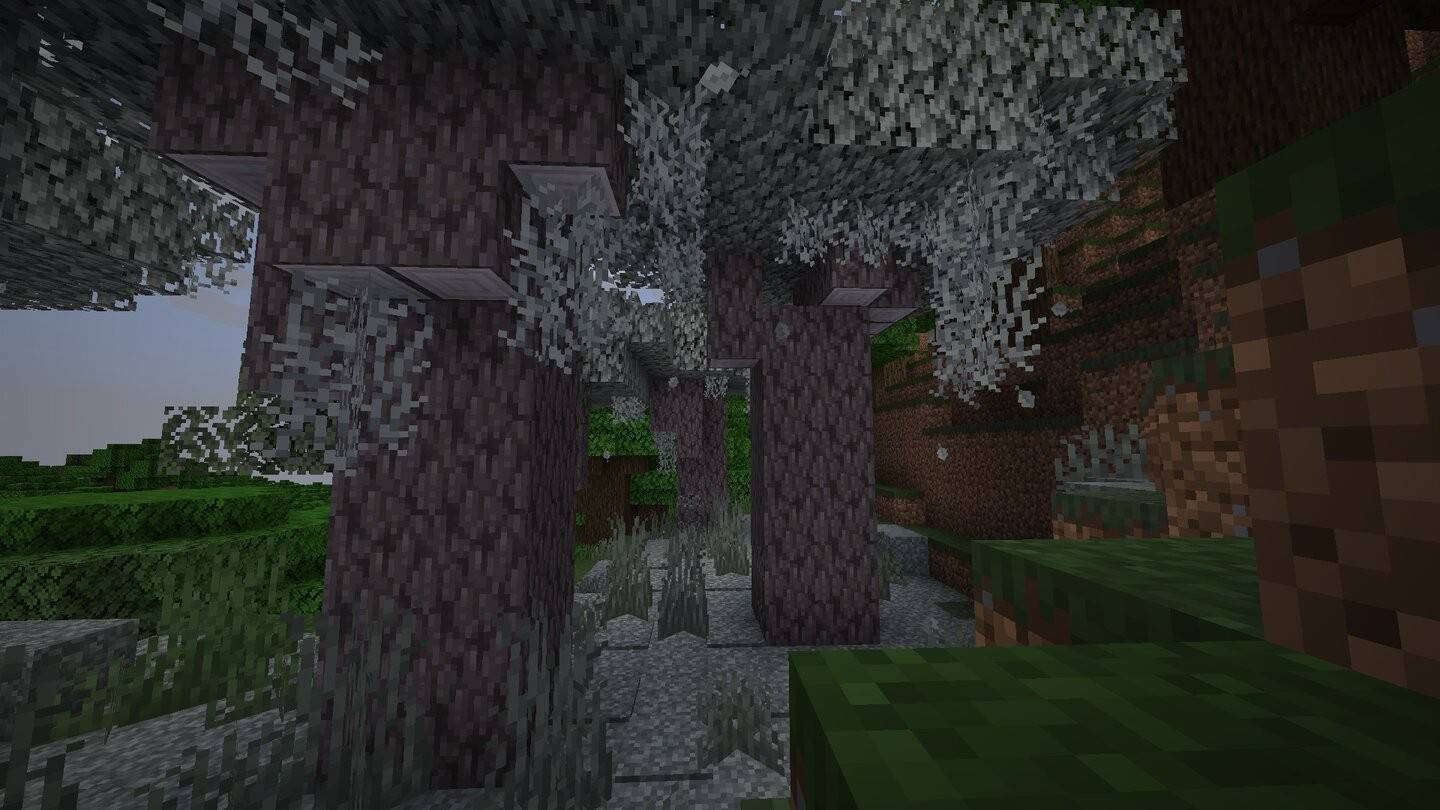 Image: ensigame.com
Image: ensigame.com
Rare, appearing only in Pale Gardens, pale oak mirrors dark oak's texture but in gray tones. Its hanging moss and "skripcevina" (summoning aggressive "skripuns" at night) add unique elements. It contrasts beautifully with dark oak.
Mangrove
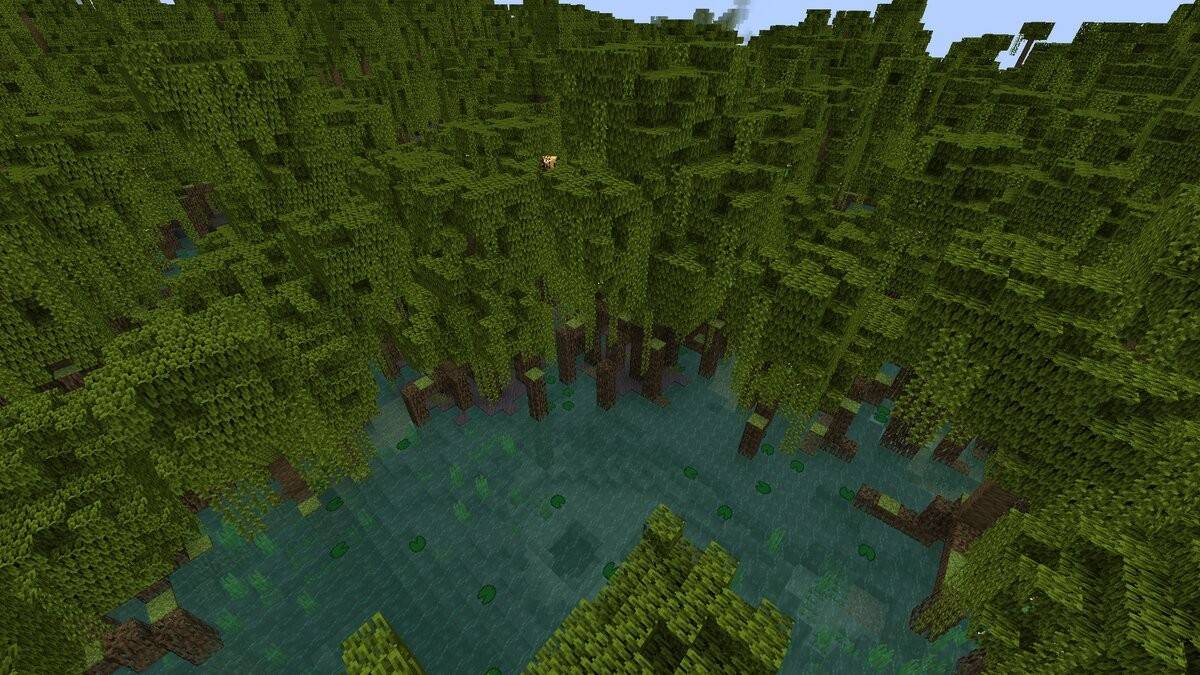 Image: youtube.com
Image: youtube.com
Recently added, mangrove trees thrive in mangrove swamps. Their reddish-brown wood and roots are decorative elements for piers, bridges, or swamp-themed structures.
Warped
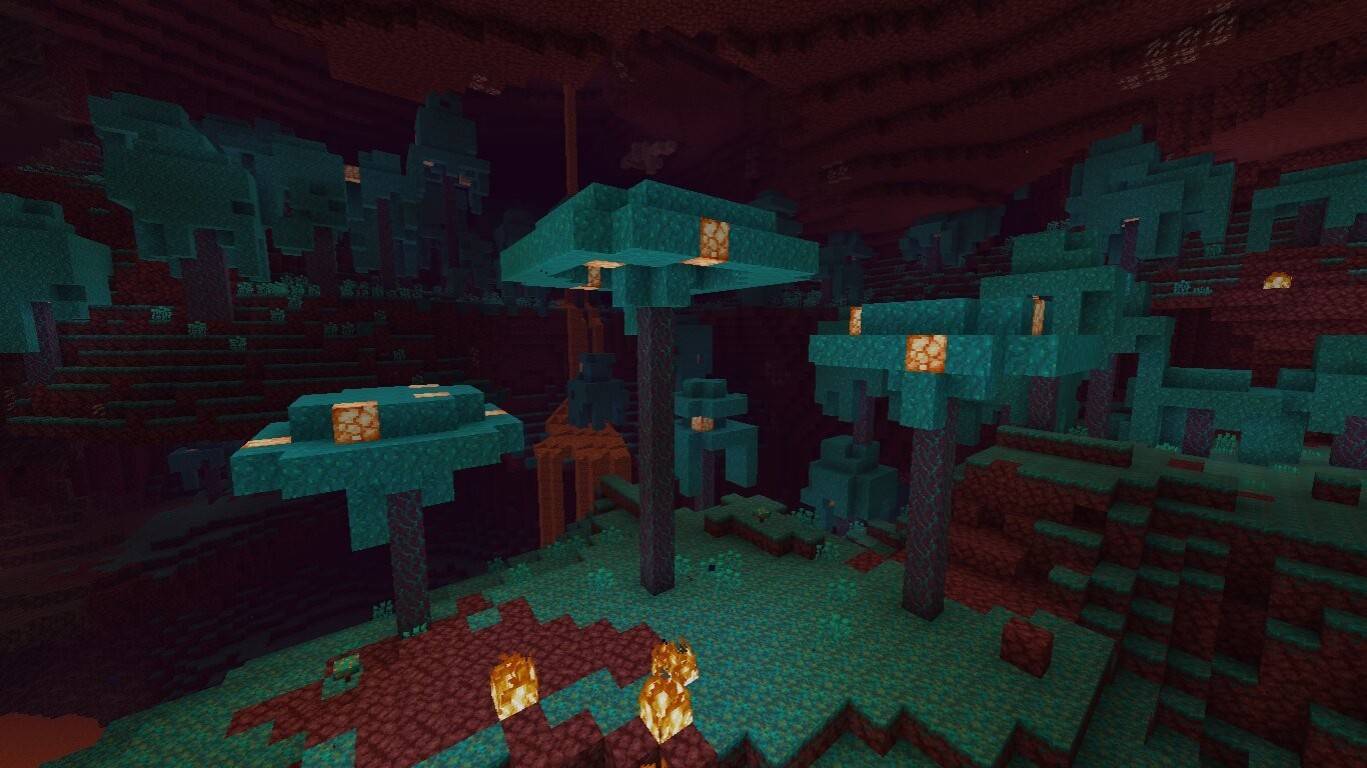 Image: feedback.minecraft.net
Image: feedback.minecraft.net
One of the Nether's two tree types, warped wood's turquoise color creates unique fantasy builds. Its bright texture suits magic towers, mystical portals, or decorative gardens. Nether trees are fire-resistant.
Crimson
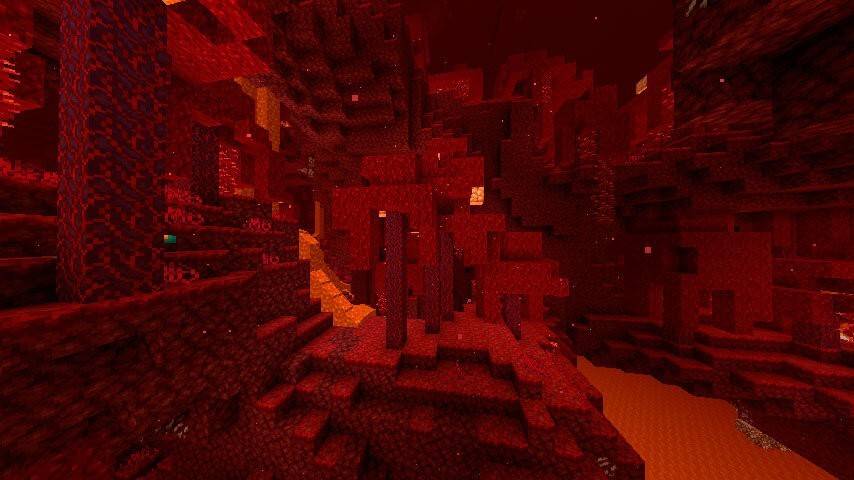 Image: pixelmon.site
Image: pixelmon.site
The Nether's other tree type, crimson wood's red-purple hue is ideal for dark or demonic themes. Its fire resistance makes it suitable for hazardous environments. It's popular for Nether-themed interiors.
Cherry
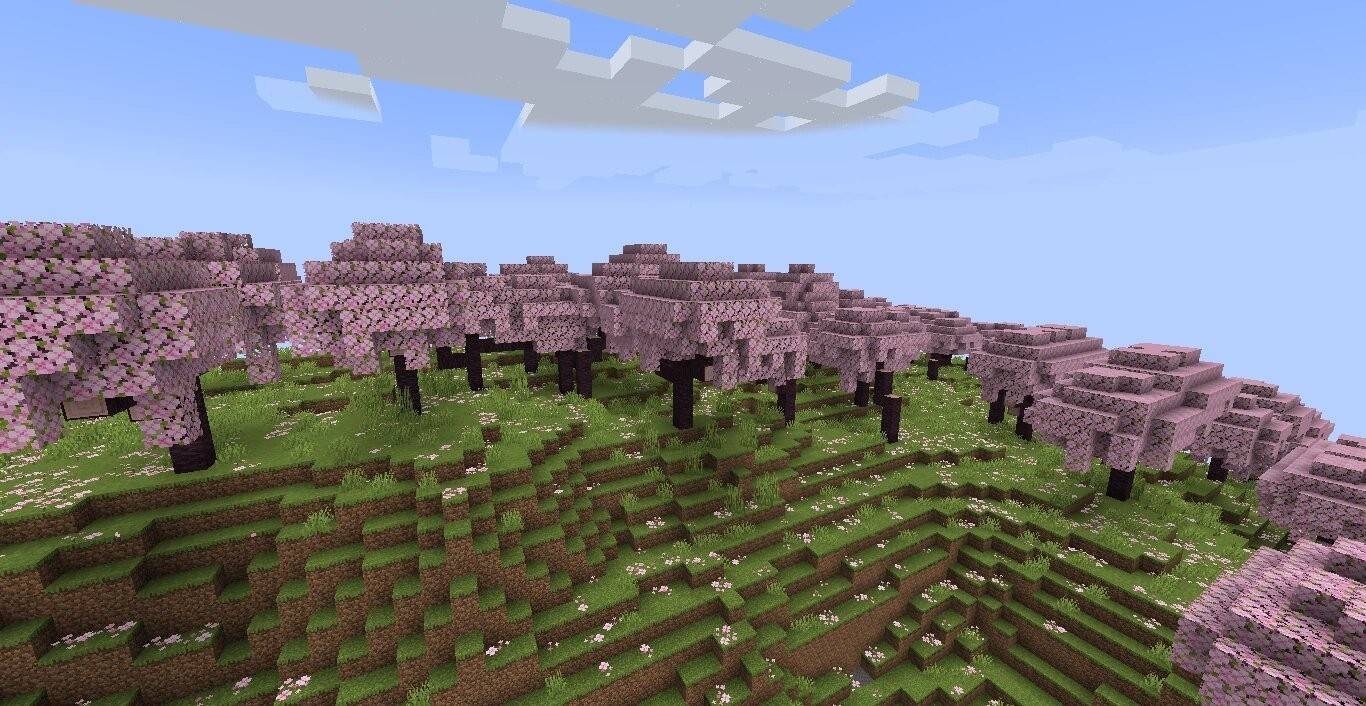 Image: minecraft.fandom.com
Image: minecraft.fandom.com
Found only in cherry groves, cherry trees generate falling-petal particles. Its bright pink wood is used for interior decoration and unique furniture.
Azalea
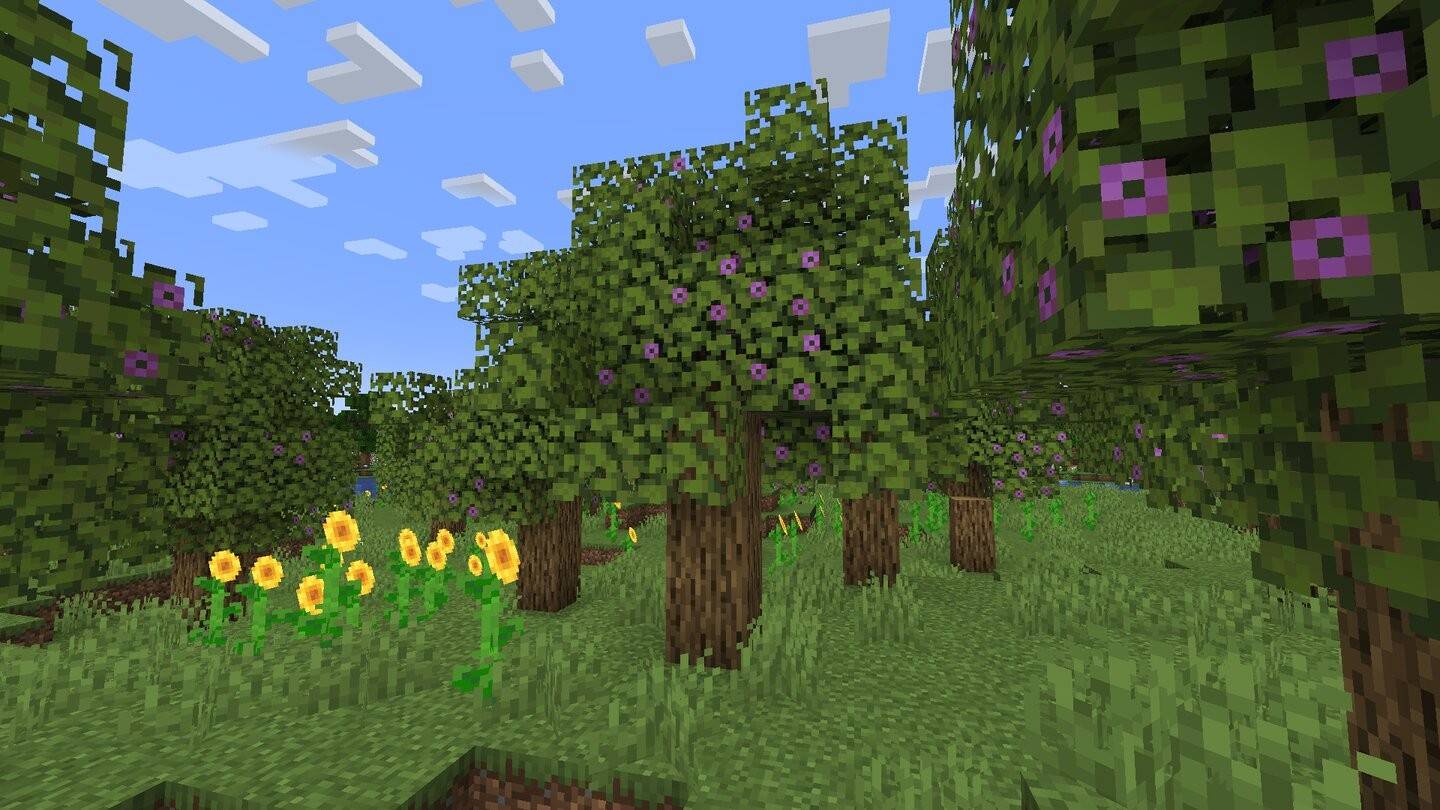 Image: ensigame.com
Image: ensigame.com
Similar to oak, azalea trees grow above lush caves, aiding mine location. Its root system is a distinctive feature. While the wood is standard oak, the flowering tree itself offers unique design possibilities.
Minecraft's wood types are more than just resources; they are the building blocks of creativity and survival. While crafting uses are largely interchangeable, the diverse textures and colors unlock endless building, decorating, and even farming opportunities. So, grab your axe and start building!



